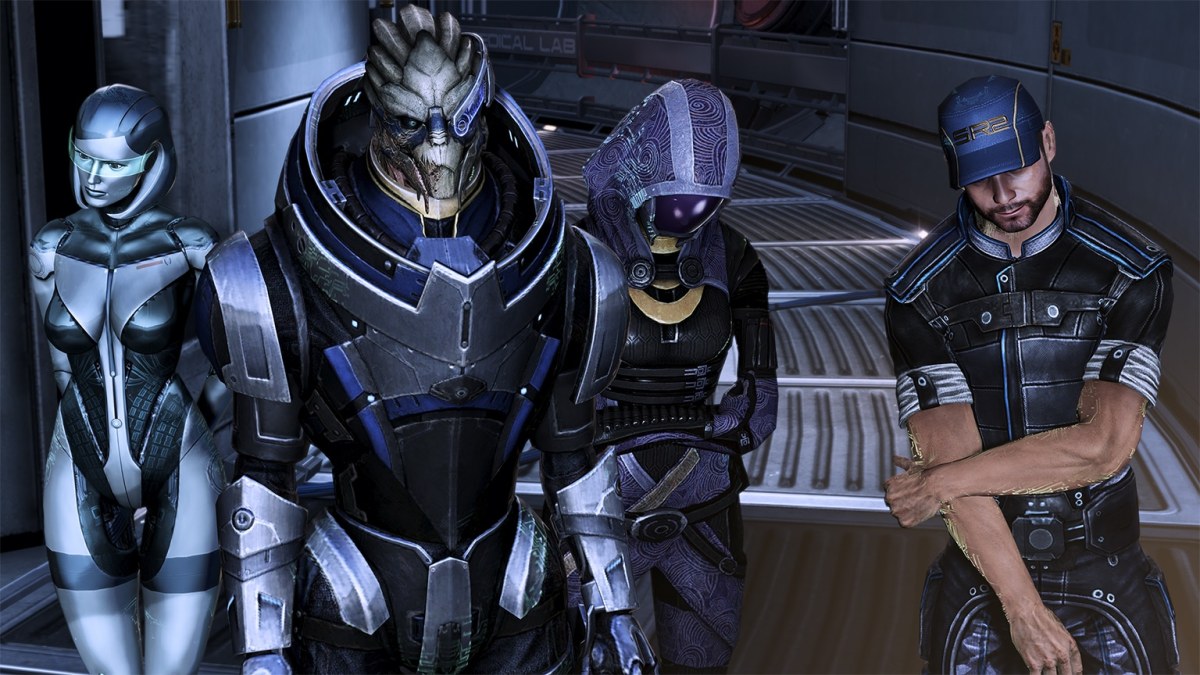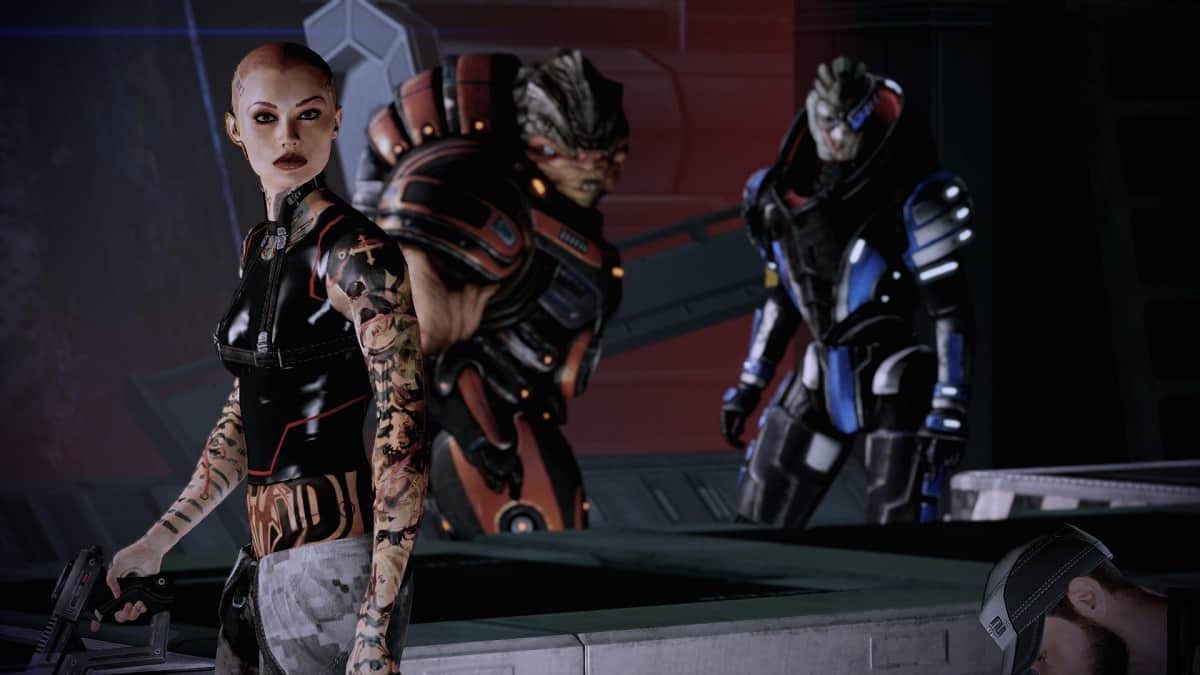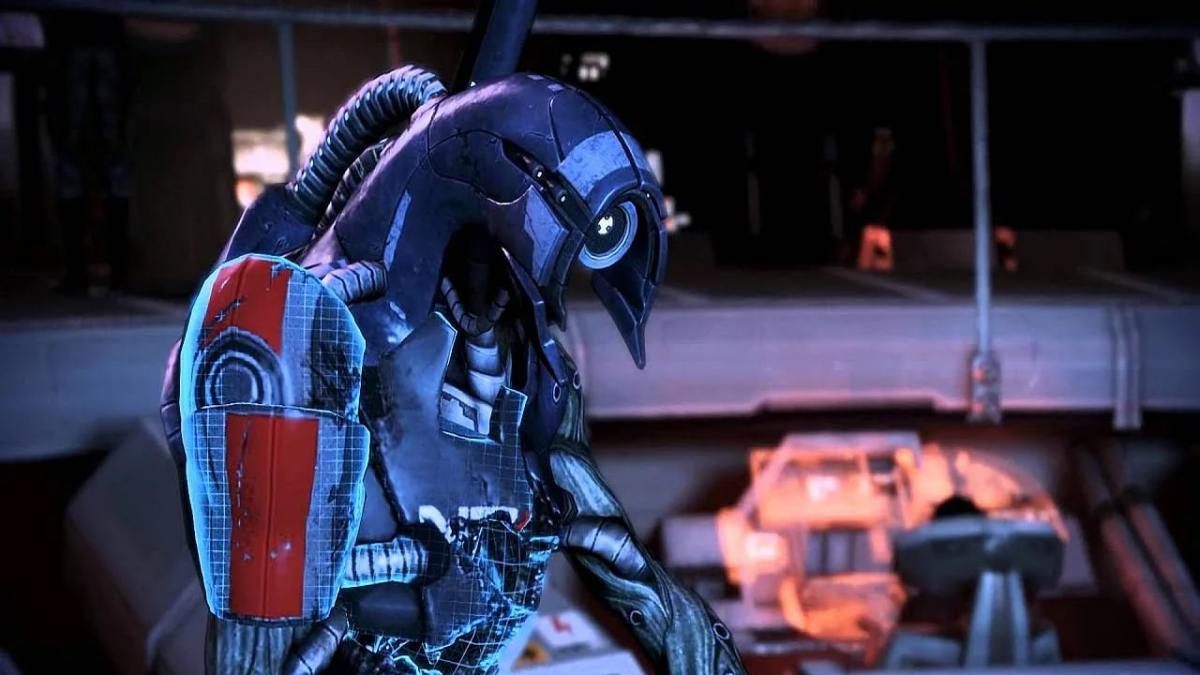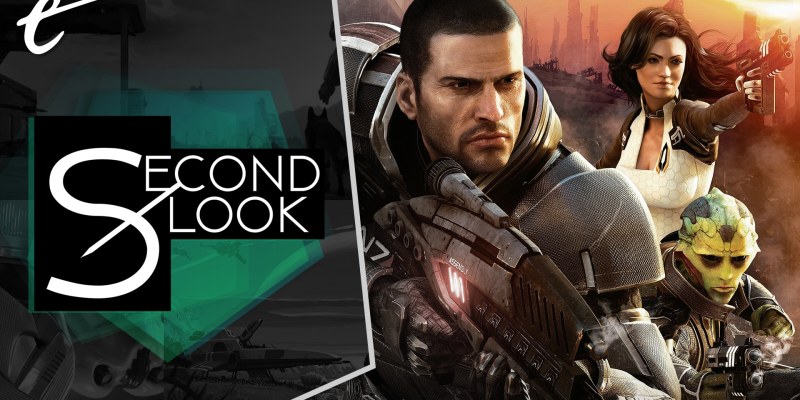The ending of Mass Effect 3 was always doomed. But not by the starchild, or the Crucible, or all the From Ashes DLC shenanigans. Instead, the true culprit is what many consider to be the high point of the series: Mass Effect 2, particularly in how it alters the way Mass Effect works. In Mass Effect 2, you’re not simply inhabiting a character in a story, but instead editing someone else’s to your liking.
Shepard is a person with a fairly established history and personality from the get-go. As a result, you mostly choose how patient Shepard is, whether they invite someone into their bed, and whether or not they’re a colossal jerk to certain races or characters. Logistically, it makes perfect sense, and to BioWare’s credit, they hide the sheer linearity of events brilliantly.
Shepard can’t go anywhere or do anything out of line. It’s noteworthy that you can deviate from the script at all in certain loyalty missions, and even then, the repercussions are often thematic rather than impacting your main journey. Outside of rare instances, most players will enter Mass Effect 3 with roughly the same companions, completed quests, and, according to BioWare’s metrics, the same outcomes on major decisions.
If so much is almost set in stone, why do so many people love Mass Effect 2? Because it makes you care — and hides that all you’re doing is slightly altering a fairly static story. Convincing an ally not to kill someone typically doesn’t alter the story in any substantive way, but it does alter your relationship with the characters. Likewise, if someone you spared in Mass Effect 1 returns to remind you that you spared them and gives you the same busywork quest a different NPC would’ve otherwise, that just might resonate emotionally too. More than other BioWare RPGs like Star Wars: Knights of the Old Republic, Mass Effect 2 works incredibly hard to make you feel like you’re in control, even if you aren’t in the way you think you are.

How Mass Effect 2 disguises your lack of true agency is both brilliant and troubling. For how little you actually change, it’s always the experience that’s foremost in the average player’s mind: How do NPCs feel about them, how badass or compassionate do they feel, are they aligned with a cause they agree with? This was actually one of the few criticisms levied at Mass Effect 2 — you’re essentially forced to work with Cerberus, even if you opposed them in the past, though it attempts to justify it.
Otherwise, your role in pivoting Shepard paints the galaxy the way you want. If you didn’t care about the Krogan enough to spare Wrex on Virmire in Mass Effect 1, in Mass Effect 2 he’s replaced by his brother who justifies your bias and opens doors down the line for continuing to rebuke and condemn the Krogan. The same goes for the Quarians and Geth in Mass Effect 2, with the power to cripple either in benefit to the other in an increasingly morally gray conflict.
Whole companions and other major characters can live or die based on how you want the story to play out, but the core story itself never changes. You can’t lead a Krogan uprising and decimate the other Citadel races, nor can you doom both the Geth and Quarians simultaneously. Again, all you can really do is edit the story within given parameters.
This isn’t actually a bad thing though. Any branching story can only take player choice so far, and Mass Effect 2 gives its light choices a terrific illusion of weight with how it reflects them back to the player. It’s a brilliant deception bolstered by the already stellar dialogue, mission design, and acting — one can’t be surprised that a game from 2010 holds up so well given all of this.

Nowhere is this more obvious than the missions that lack this sort of faux-branching narrative. Though Arrival is arguably the most important DLC mission in Mass Effect 2, it’s equally the worst mission in the entire campaign. Your greatest choice is whether or not to shoot an annoying character before they can finish monologuing. And if that sounds awfully familiar to those who’ve finished Mass Effect 3, therein lies the flaw of Mass Effect 2’s precedent.
Though Mass Effect 3 works incredibly hard to stick the landing on each mini-finale for the aforementioned Krogan and Quarian conflicts, those conflicts are also the only ones with multiple missions. The Turians, Asari, and Salarians scarcely get a mission each, and content cuts stemming from time restraints can only explain away so much of that. Though you’ve had teammates from all species, they’re either rooted in one of the secondary conflicts or purely the main threat of the Reaper war effort.
As such, the majority of moments that reflect your actions aren’t in the main story. Of course Shepard has to take the fight to the Reapers, no matter how many poor choices they’ve made along the way. Neither BioWare nor the story can really afford to have wildly different conclusions, which results in the multi-colored mess players groaned about at launch. Since your input mostly affects the tone and outcome of various societal and social subplots, it’s little surprise the finale ended up being multiple choice.
Even Mass Effect 2’s famous suicide mission is, at its core, a handful of simple logic puzzles so obvious that even calling them “puzzles” is intensely generous. However, if any squadmates are disloyal to you due to your previous decisions, it will complicate the results of the otherwise straightforward mission, which is a welcome wrinkle. It would’ve been great if Mass Effect 3 could replicate this sort of dynamic for its conclusion, but the vast potential variables to consider would have resulted in too many challenges and potentially unpredictable frustrations for the developers and players both.

Thus, the series’s ending isn’t yours to decide — simply the tone of it. To be Paragon, Renegade, or something in-between. BioWare’s brilliant (and brilliantly deceptive) storytelling approach worked too well. It legitimately convinced players that they had a say in how this was all going to end, when in reality the game was rigged from the start.
It’s tough to end a story at the best of times, but Mass Effect in particular sold such a particular fantasy far greater than a simple sci-fi epic — it sold you the idea of a story that truly reacts to your choices. And it does, just not in the way it feels. Fantasies don’t always end the way we prefer.
Yet in Mass Effect’s case, you can always go round again. The journey is fantastic, bolstered by enough variance to get a good few playthroughs out of three games. However difficult a position BioWare may have put itself in, it still resulted in the brilliance of Mass Effect 2 and has carried forward into future projects with greater complexity. Star Wars: The Old Republic in particular has raised the bar in several ways over the years, but that’s a story for another day. As it stands, I can’t fault BioWare for choosing this approach, though much like with the outcome of Mass Effect 3, the consequences of its course are seemingly inevitable.
